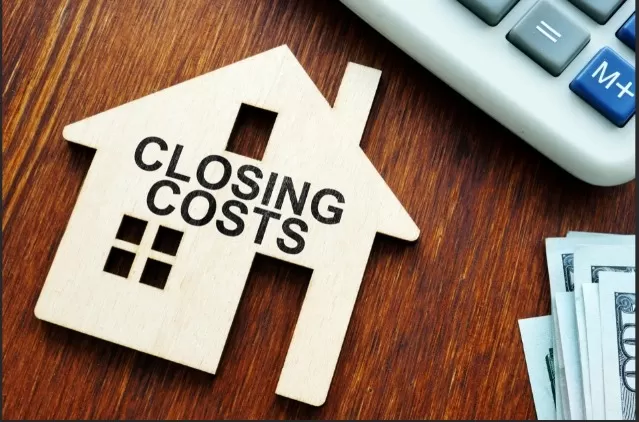12 Concealed Expenses Associated with Home Selling (Part 2).Selling your house is a significant financial transaction that involves several considerations and potential costs. To ensure a seamless transition, it’s essential to Be Prepared for the financial implications that may arise.By proactively planning for these financial considerations, you can navigate the home-selling process with confidence and minimize unexpected financial “bites.” Careful preparation and consultation with real estate professionals will help you make informed decisions and ensure a smoother transition to your next chapter.
Escape the Digital Clutter: Immerse Yourself in the World of Books with Target Book Club Subscription

If you’ve ever felt like the internet is taking over your life, it’s time to hit the pause button on those videos and reconnect with the joy of reading.
Target’s Book Club subscription is your ticket to a world of literary adventures, and it leaves no room for excuses.
With this subscription, a carefully selected book will find its way to your doorstep every month.
Say goodbye to endless scrolling and hello to the enchanting realm of storytelling. To kickstart your reading journey, each book comes with an author’s letter and a reader’s guide, providing you with the inspiration and insights needed to dive into your next literary escapade.
Reignite your passion for reading and escape the digital noise with Target’s Book Club subscription.
It’s the perfect way to rediscover the pleasure of getting lost in a good book, one month at a time.
Navigating the Costs of Property Surveys
In residential developments that are relatively young, typically under 30 to 40 years old, property boundaries are often clearly marked by curb cuts or property pins discreetly inserted below ground, easily detectable with a metal detector.
However, the situation can vary significantly in older neighborhoods and rural areas. In these cases, a property survey might become a necessity to establish accurate property lines.
When considering a property survey, be prepared to budget for this essential service.
Costs can range anywhere from $250 to $1,000, contingent on the size and layout of your property. The specific requirements and complexity of the survey will dictate the final price tag.
If your property is listed with a real estate brokerage, your agent will typically oversee this process.
Conversely, if you’re managing the sale independently, you can find a qualified land surveyor either through local directories or by seeking recommendations from a trusted local title insurance company. Ensuring the accurate delineation of your property lines is an important step in the real estate transaction process, and investing in a survey can provide peace of mind for both buyers and sellers.
Navigating Negotiations: Understanding Seller Concessions in Real Estate

Real estate transactions are often marked by extensive negotiations, with buyers frequently presenting conditional requests for items to be included in the purchase price.
These requests can encompass various aspects, such as the seller contributing to the buyer’s closing costs, leaving behind specific household appliances, or even including unique personal possessions like a cherished family heirloom.
Ultimately, the decision to grant seller concessions lies in the hands of the seller.
It’s a strategic choice that depends on various factors, including market conditions, the buyer’s offer, and the seller’s financial and personal preferences.
Seller concessions can be a valuable tool in making a deal more attractive to potential buyers or closing a sale in a competitive market.
However, sellers should carefully weigh the costs and benefits of such concessions, considering their impact on the final sale price and overall financial position.
In the realm of real estate negotiations, seller concessions are just one facet of a complex process where both parties aim to reach a mutually beneficial agreement.
Deciding whether to accept these concessions requires thoughtful consideration and often involves the guidance of a real estate agent or legal counsel to make informed choices aligned with your goals and priorities.
Managing Vacant Property: Understanding the Associated Costs
When you find yourself in the situation of relocating before your house sells, it’s important to be aware of the various fees and expenses that may arise to maintain the property’s market readiness and appearance.
These fees are incurred to ensure your vacant house remains appealing to potential buyers. Some common vacant house fees include:.
Utilities: You may need to continue paying for utilities like electricity, water, and gas to keep the property functioning and habitable.
This ensures that prospective buyers can view the house comfortably, and it helps prevent issues like mold or extreme temperatures that could deter potential buyers.
Homeowners Association (HOA) Fees: If your property is part of a homeowners association, you may be responsible for ongoing HOA fees to maintain community amenities and common areas, even if you’re not living there.
Insurance: Your homeowner’s insurance policy may need to be maintained to cover the property while it’s vacant.
Be sure to inform your insurance company of the vacancy to ensure adequate coverage.
Security: Depending on the area’s security concerns, you might consider investing in security measures such as alarm systems or regular check-ins to safeguard the vacant property.
Lawn Care and Maintenance: Regular lawn care and general property maintenance are crucial to keep the house looking presentable.
Overgrown grass and unkempt exteriors can discourage potential buyers.
Property Management: If you’re unable to manage the property yourself, you may need to hire a property management company to oversee maintenance, conduct regular inspections, and address any issues that may arise.
Taxes: Property taxes will continue to accrue, and you’ll need to stay current on these payments to avoid legal complications.
Mortgage Payments: Continue making mortgage payments on the property, unless you’ve explored options like renting it out while it’s on the market.
It’s essential to plan and budget for these vacant house fees when deciding to relocate before your home sells.
Consult with a real estate agent or financial advisor to understand the specific costs associated with maintaining your vacant property and to explore potential strategies to mitigate these expenses.
Clearing Your Mortgage Debt: Understanding Mortgage Payoff During a Home Sale

When you decide to sell your home while you still have an outstanding mortgage, it’s crucial to comprehend the mortgage payoff process, which ensures that your lender is compensated for the remaining balance you owe.
Here’s how it typically works:.
Collaboration with Lender: Your lender will collaborate closely with your real estate agent and the closing company to facilitate a smooth transaction.
They will calculate the exact amount needed to satisfy your mortgage debt.
Deducting Mortgage Payoff: At the time of closing, the proceeds from the sale of your home will be used to clear your mortgage debt.
The closing company or attorney overseeing the transaction will ensure that this amount is paid directly to your lender.
Payoff Amount: Your lender can provide you with the precise mortgage payoff amount.
This figure includes the remaining principal balance, any accrued interest, and any applicable fees, such as prepayment penalties or processing fees.
Good Faith Estimate (GFE): If you’re working with a real estate agent, they will obtain the mortgage payoff amount from your lender and factor it into the overall closing costs.
Your agent will then provide you with a Good Faith Estimate (GFE), which outlines the expected amount you will receive from the sale of your home after all expenses are deducted.
Proceeds: After all costs, including the mortgage payoff, closing fees, agent commissions, and other relevant expenses, have been settled, you will receive the remaining proceeds from the sale.
This amount will be in the form of a check or a direct deposit, depending on your preference and the practices of the closing company.
It’s essential to communicate effectively with your lender and real estate agent throughout the selling process to ensure a clear understanding of the financial aspects of the transaction.
Being well-informed about your mortgage payoff and expected proceeds will help you make informed decisions and plan for your financial future accordingly.
*The information is for reference only.